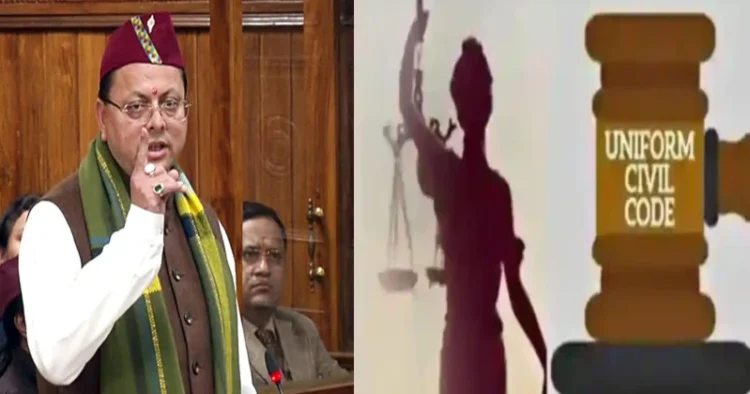The Uttarakhand Common Civil Code moved one step closer to becoming law as the bill was sent by Raj Bhavan to the President’s office for approval on February 29.
According to the source from Raj Bhavan, after the approval of President Droupadi Murmu, the way will be cleared for the implementation of Common Civil Code law in Uttarakhand. The Government has sent the UCC bill to the Uttarakhand Governor, Gurmit Singh, who in turn referred the same to President Murmu for her approval.
The Chief Minister Pushkar Singh Dhami Government introduced the Common Civil Code Bill on February 6, emphasising its importance. Now, with the nod from Raj Bhavan, the legislative channel has paved the way for the bill to be presented to the President for final approval.
Earlier, Chief Minister Pushkar Singh Dhami said on February 24, that the Common Civil Code Bill has been implemented in the state after taking into account several factors and that the Bill has the support, vote, and blessings of the people of Uttarakhand.
While speaking to the media in Haridwar on February 24, Chief Minister Dhami said, “The Common Civil Code Bill was implemented in the state after taking into account all geographical factors, members of our diverse communities and members of religious organisations. The bill has the support, vote, and blessings of the people of Uttarakhand.”
The Chief Minister further said that just as the holy Ganges emerge from Devbhoomi Uttarakhand, in the same manner, the Common Civil Code bill has also emerged from the State.
On February 7, Chief Minister Pushkar Singh Dhami said that the passage of the Common Civil Code bill in the Legislative Assembly marked a “historic day in the history of Uttarakhand.
He emphasised that the legislation benefits every section of society, asserting that a Government promise to the people has been fulfilled.
The Common Civil Code Bill was passed with a comfortable majority during a special session of the Uttarakhand assembly on February 7. The UCC, which proposes similar or uniform laws for all communities, was tabled during the special session by the Chief Minister.
The Common Civil Code Bill is a proposal in India to establish uniform rules for personal matters for all citizens. These matters include marriage, divorce, inheritance, and property rights. The Common Civil Code would apply to all citizens equally, regardless of their religion, gender, or sexual orientation.
The Common Civil Code is part of the Constitution’s non-justiciable directive principles of state policy. Some members of the Constituent Assembly strongly advocated for its binding implementation, while others raised concerns about the potential infringement on religious freedom and cultural diversity.
(with inputs from ANI)




















Comments